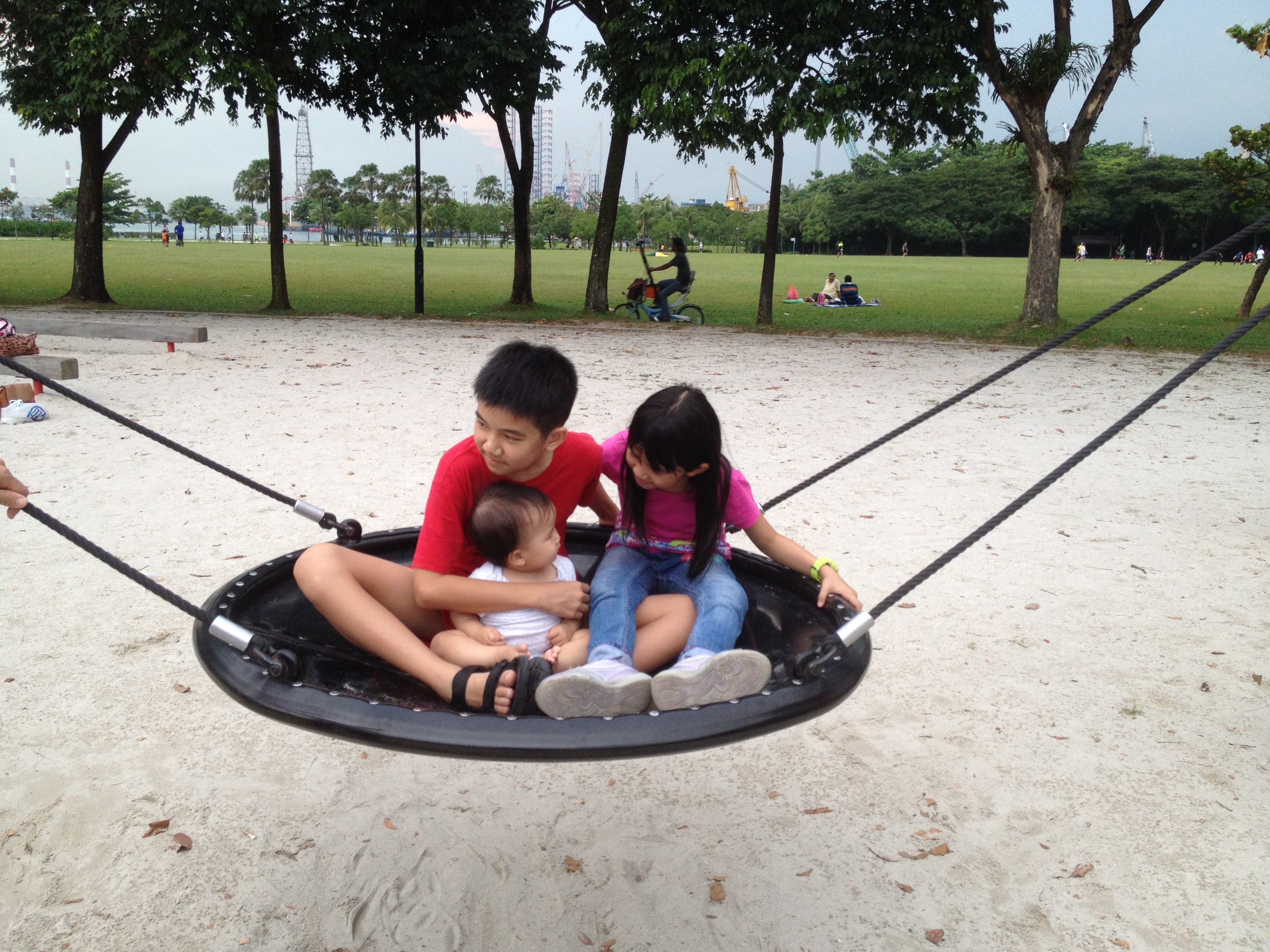One of the most common problems parents face is the difficulty in having their children get along harmoniously. Conflicts exist in ALL relationships because disagreements are inevitable. Hence it is unrealistic to expect our children to ALWAYS get along. However, we can help our children reduce the frequency and intensity of their conflicts by helping them build a more harmonious relationship with one another.
Here are 8 ways we can achieve that.
1) Spend Uninterrupted Time With Each Child Daily
Let each child know he has a special place in our hearts. Children who are loved and feel secure tend to fight less. Spend 15-20 minutes of uninterrupted time with each child daily. If we have little ones who nap, we can spend a little of that time to interact individually with the older ones who no longer nap. Or if our kids are older and can be left at home on their own, go to the grocery store with one of them. Or prepare a meal together. Steal little pockets of time throughout the day to spend one-on-one time with each of our children. Ask them what was difficult for them that day. Listen to how their day went. And remember to tell each and every one of them, “I love you” DAILY. Not just a cursory “love ya”, but a look-them-in-the-eye, I-am-serious, “I love you”.
2) Create An Appreciative Environment At Home
Sometimes children get so caught up in the little fights they have with their siblings they forget the goodness in one another. Create opportunities constantly for them to remind themselves how much they appreciate one another. One way to do this is to have everyone takesturns saying something appreciative or positive about everyone else in the family during dinner. Not only will the person expressing appreciation have increased feelings of positivity towards the others, the one at the receiving end feels good and appreciated. Mutual feelings of positivity increase connectedness. When there is connectedness, there is more empathy and less reason to fight.
3) Be Watchful For Positive Interaction
As the saying goes, “The squeaky wheel gets the grease”. As parents, we tend to “ignore” our children when they are getting along. But when they start fighting, we would miraculously materialise to stop their fights. So sometimes children unconsciously fight to get our attention. To avoid that, take time to praise them and catch them when they are interacting and playing well together. Be on the lookout for moments when they are cooperating or helping one another and thank them for doing so. When they know they get positive attention from us when they get along, there are fewer reasons for them to fight and get our negative attention.
4) Never Compare The Child
Comparison sours relationships. The child who gets compared poorly against another child, or worse, her own sibling, will grow to resent that other child. Or the child who gets compared favourably against another child, especially her own sibling, will feel superior and behave in that manner to that other child. Either way, resentment or superiority does not support collaborative or peaceful relationships. Treat each child as the special being that she is. Acknowledge her strengths without putting down another person and develop her weaknesses without showing her up against someone else. When our children do not feel they are better or worse than another child, they will have more harmonious relationships with one another.
5) Help Them See One Another As Their Teachers
When someone irritates us, we can either choose to be frustrated, or think about what we can learn from that someone. If one child is testing the patience of another, help the other child see it as an opportunity for him to learn how to stop the “perpetrator” peacefully. AND teach the child who is irritating the other that he is learning self-control to stop being irritating. The more children learn to see others as their teachers, the more ownership they have in learning their lessons. They will stop seeing themselves as victims of others (eg “he was testing my patience”) or victims of circumstances (eg “it was a wonderful opportunity to tease him”). Helping them see one another as their teachers allow them to reduce the animosity of their fights and turn them into lessons for learning instead.
6) Stop Tattletaling
While it is helpful to have a child who toes the line and obeys all rules, it is detrimental to let that child become the rule-upholder of the family. Tattletaling hurts sibling relationships. As parents, we can thank the tattletaler for knowing the rules well but let her know that turning in her siblings betrays their trust in her. Refrain from disciplining the other children who were told upon. When we discourage tattletaling, our children will learn to trust one another more. With increased trust, their relationship will improve and they will get along better.
7) Role Model Conflict Resolution
Actions speak louder than words. To teach our children how to resolve their conflicts peacefully, we need to role model that for them. What do our children see and hear when someone cuts into our lane when we are driving? Do we curse the inconsiderate driver and blast our horn? What will our children learn instead if we wonder out loud, “That person seems to be in a hurry. We can let him go ahead of us.” Or “I wish I can let that person cut in, but we’re really in a big hurry.” Our children are also watching our day-to-day interaction at home. What do we do when we have a disagreement with our spouse? Do we shout our point of view and slam doors in frustration? Or do we talk calmly over our differences? Children pick up our responses to conflicts very rapidly. When we role model how to get along with others, our children will learn it quickly and naturally.
8) Rethink Punishments, Especially Corporal Punishments
Corporal punishment means inflicting physical pain on someone for something they have done wrong. When we inflict pain on our children for their wrongdoing, we are teaching them to do likewise to those whom they think have done something wrong to them. Let us correct misbehavior peacefully and lovingly so our children can learn how to do likewise. Like role modeling conflict resolution, the way we discipline our children teaches them how to “discipline” others, especially their siblings.
How do you help your children get along?
– Vivian –



